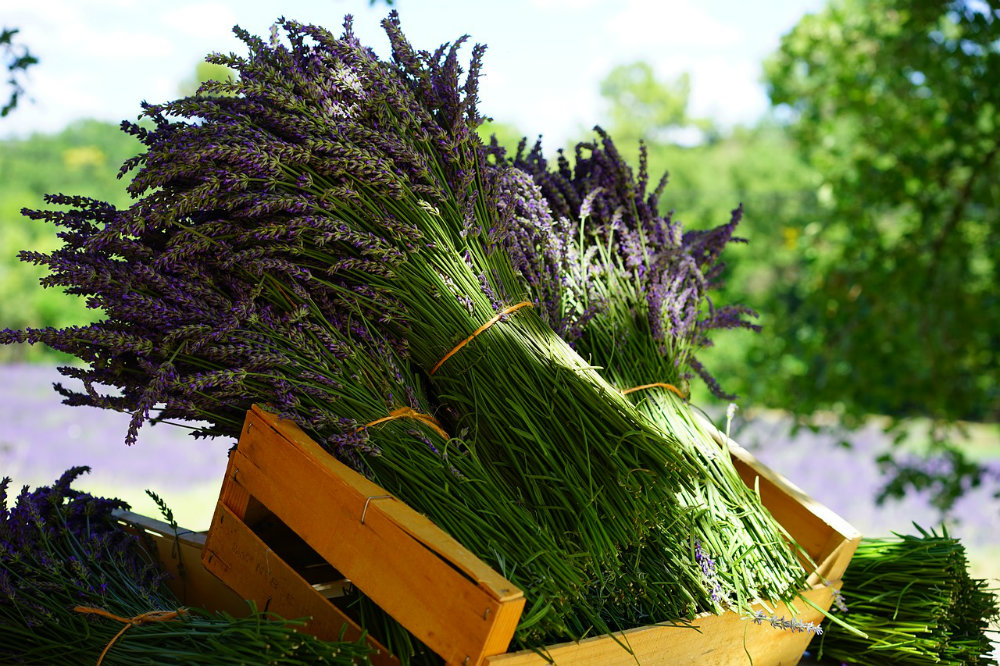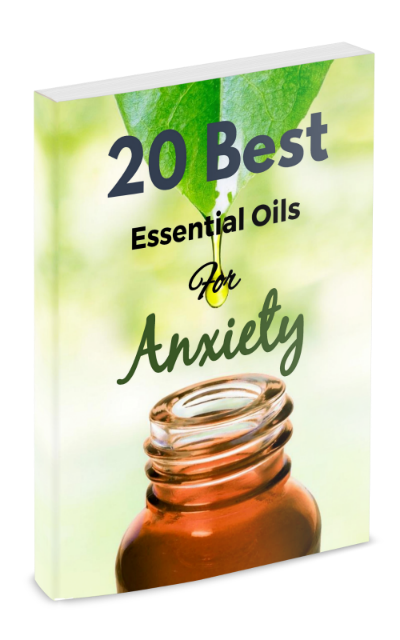Lavender aromatherapy oil has a fresh and herbaceous aroma. It has a bittersweet character that is soft and floral. Lavender oil is good for calming strong emotions, promoting a mental-emotional equilibrium, and releasing pent-up energy.
Lavender oil is produced from the shrub, Lavandula angustifolia. Also known as true, garden or English lavender it originates from the Mediterranean region.
Lavender can grow to a height of over six feet and produces narrow evergreen leaves. It is noted for its small flowers in the beautiful color we call by the name of the plant – lavender. Lavender has a very recognizable scent.
Makers of essential oil of lavender use steam distillation to extract lavender aromatherapy oil from the flowers.

Lavender Aromatherapy Oil for the Mind:
Lavender oil is very popular for its calming effects on the mind. It can help deal with mental fatigue, depression, and anxiety. It can also soothe the physical manifestations of these ailments, such as headaches, and physical tension.
The essential oil of lavender is an effective treatment for insomnia
Lavender Aromatherapy Oil Helps Relieve Anxiety and Insomnia Caused By:
- Panic and hysteria
- Frustration and irritability
- Buildup of unexpressed emotions
Blending Lavender Aromatherapy Oil for Additional Anxieties:
- Rose and Spikenard: Blaming ones-self for everything
- Peppermint and Bergamot: Impatient and irritable
- Cypress and Melissa: Feeling ‘downtrodden’ and suppressed
Uses of Lavender Aromatherapy Oil for the Body:
One of the traits of lavender aromatherapy oil is its versatility. Lavender has an antibacterial and antifungal effect. This makes it suitable for treating small cuts and acne. It’s also an effective bug repellent. It can keep moths and mosquitoes away, and it also works as a lice deterrent.
The essential oil of lavender stimulates blood flow regulates the production of sebum. It makes a popular choice for inclusion in skincare and massage products. It also helps relieve muscle tension and joint pains.
Lavender aromatherapy oil can treat respiratory issues such as coughing, throat infections, symptoms of the flu, and sinus congestion. It works both as an antibacterial agent, and as an expectorant.
For the stomach, lavender essential oil acts as a stimulant, increasing the secretion of digestive juices. This can be helpful when dealing with flatulence, indigestion, or stomach pain.
Lavender in Ancient History
Lavender has been praised for its scent since ancient times. Ancient Egyptians used it in the mummification process and as a perfume. The Greeks used to trade it for other goods. The Romans, who were partial to all things fine in life, paid handsomely for lavender flowers which they used in baths.
Lavender in Modern History
In Medieval Europe, lavender was known both for its scent and for its medicinal properties. It was one of the ingredients of the legendary Four Thieves vinegar, which was believed to be able to repel the Plague.
Nicolas Culpeper, an English botanist who lived in the seventeenth century, had nothing but praise for effects of lavender:
“Lavender is of a special good use for all the griefs and pains of the head and brain that proceed of a cold cause, as the apoplexy, falling-sickness, the dropsy, or sluggish malady, cramps, convulsions, palsies, and often faintings. It strengthens the stomach, and frees the liver and spleen from obstructions, provokes women’s courses…“
His book The Complete Herbal describes how the people of his time used lavender. It also mentions lavender oil, and it provides a warning about its use:
“Two spoonfuls of the distilled water of the flowers taken, helps them that have lost their voice, as also the tremblings and passions of the heart, and faintings and swooning, not only being drank, but applied to the temples, or nostrils to be smelled unto; but it is not safe to use it where the body is replete with blood and humours, because of the hot and subtile spirits wherewith it is possessed.
The chymical oil drawn from Lavender, usually called Oil of Spike, is of so fierce and piercing a quality, that it is cautiously to be used, some few drops being sufficient, to be given with other things, either for inward or outward griefs.“
Lavender Aromatherapy Oil Cautions:
Although it’s one of the most commonly-used essential oils, use lavender aromatherapy oil with some caution. Avoid using during pregnancy and nursing.
People undergoing medical treatments for insomnia and depression shouldn’t use lavender oil in case of possible drug interactions. Diabetes sufferers should consult their doctor before using lavender aromatherapy oil.


